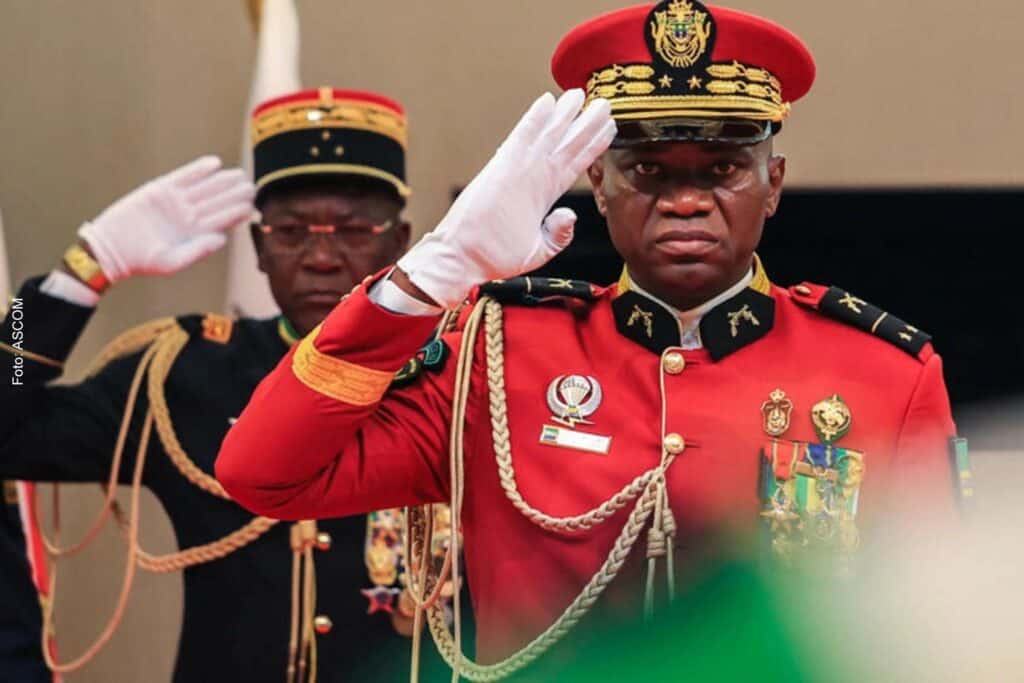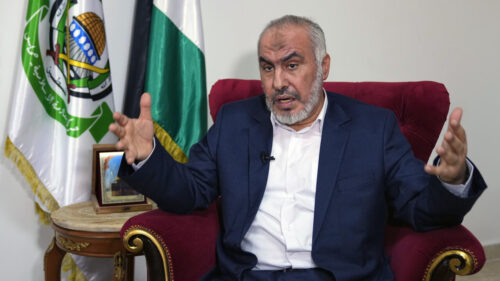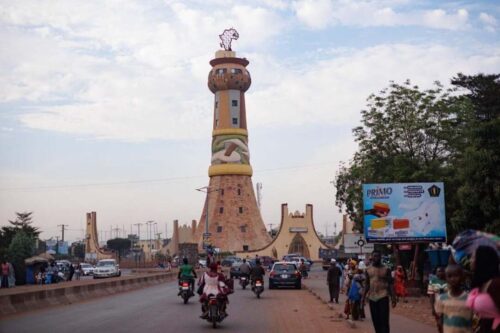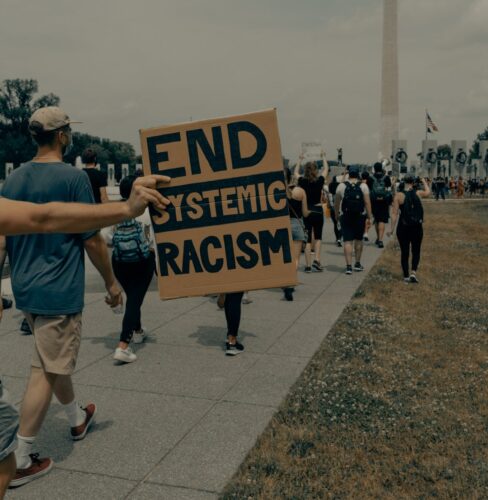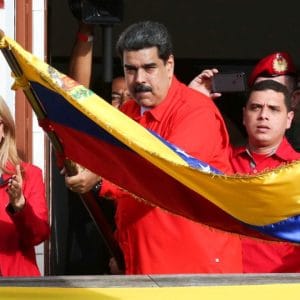– Victor Assis
Who leaves their country for economic reasons is also a political exile. This is what Daniel Mengara, a professor of French and Francophone Studies at Montclair State University in New Jersey, United States, believes. He is the founder of the Bongo Must Go movement, a group of political exiles who opposed the regime of Ali Bongo Ondimba in Gabon. Ali Bongo had been the president of the Central African country for 14 years until he was overthrown by a successful military coup on August 30th.
“We decided to put an end to the current regime,” said Colonel Ulrich Manfoumbi Manfoumbi in a televised statement. This is how the whole world became aware of the end of the Ali Bongo Era. “The general elections of August 26, 2023, as well as their manipulated results, are canceled. The borders are closed until further notice. All the institutions of the Republic are dissolved.”
For many, the sight of a group of military personnel announcing the dissolution of a country’s institutions on television can be chilling. Especially for Brazilians who endured 21 years of a military dictatorship that was not only highly repressive but also economically regressive. However, in Gabon, according to Mengara, there might have been a “good coup.” “The question Gabonese people should be asking,” the professor told us, “is: don’t you think the Bongo family has been orchestrating a coup against the Gabonese people for 56 years?”
The imperialist countries do not share Daniel Mengara’s viewpoint. “France condemns the ongoing military coup in Gabon,” declared Olivier Véran, the spokesperson for the French government. “We are closely monitoring the situation on the ground and reiterate our desire for the election result to be respected.” Meanwhile, John Kirby, the spokesperson for the U.S. National Security Council, stated that the coup was “deeply concerning.” He further mentioned that the U.S. government would continue to “do everything possible to support the expression of democratic ideals by the African people.” The U.S. State Department also issued a statement emphasizing their strong stance against military seizures or unconstitutional transfers of power.
Despite the international pressure against recent military coups in Africa, including those in Gabon, Niger, Mali, Burkina Faso, and Guinea, Daniel Mengara does not hesitate to defend the armed forces. “I think, in the end, it all comes down to one thing: the will of the people was never really asserted in these countries. And the military felt that perhaps it’s time to give a voice to the people and ensure that the people can take control of their destiny.”
To better understand why Daniel Mengara supports the coup in Gabon, as well as to comprehend what is happening in this small Central African country, this journal decided to interview the professor, who is currently in exile in the United States. In a meeting that lasted over two hours, Mengara spoke candidly on various topics, including his opinion on the former regime, his impressions of the transitional president, the reasons for his exile in the United States, and much more. All narrated with a wealth of details, including amusing anecdotes that allow the reader to imagine living in Ali Bongo’s lawless land. An admirer of Brazil – one of the world’s great “tigers,” according to him – Mengara did not refrain from mentioning our country at various points in the interview. “Gabon is actually very similar to Brazil in many ways.”
The complete interview is already available in the September 9th edition of the Causa Operária Journal, a commemorative edition marking ten days since the coup in Gabon. This was the first interview conducted by a Brazilian media outlet with a Gabonese individual after the August 30th coup and, to our knowledge, the longest interview in the world on the subject.
Although the August 30th coup was condemned by authorities in imperialist countries, its progressive nature quickly became evident. Shortly after the announcement, leftist Jean-Luc Mélenchon stated that the ousted president, Ali Bongo, was a “puppet” of Emmanuel Macron. If even a moderate figure like Mélenchon considered Bongo a “puppet,” then surely Gabon was under a government deeply tied to the French regime. Therefore, his downfall was seen as a positive development.
Another piece of evidence for this was the spontaneous demonstrations that followed the military coup. Thousands of Gabonese took to the streets to applaud the military and sing the national anthem. There was not a single recorded instance of anyone protesting against the coup. “It was a bloodless coup,” confessed Daniel Mengara. “This means that not a single soldier was ready to defend Ali Bongo. Not one.”
In one of the most significant speeches, a man, on the day of the coup, addressed the population: “We warn saboteur countries that may want to attack our soldiers: we will make ourselves soldiers because, in times of war, we need brave men, and we are brave.” On September 4th, when the transitional president, chosen by the military, was inaugurated, this popular support re-emerged on the streets in a large, festive welcoming demonstration for Brice Oligui Nguema. “If you look at what the Gabonese are saying on social media,” Daniel Mengara said, “many people are proposing that August 30th become Gabon’s new independence day, which we should celebrate every year.”
The coup was real. On the same day that Colonel Ulrich Manfoumbi Manfoumbi announced the dissolution of the institutions, Nguema, who had already emerged as the leader of the military junta, granted an interview to the French newspaper Le Monde, stating, “Ali Bongo is retired… We decided to turn the page.”
It was also on August 30th that Ali Bongo appeared for the first time since Colonel Ulrich Manfoumbi Manfoumbi’s announcement. The president recorded a video in which he appeared visibly dejected and frightened. “I don’t know what is happening,” he said. The ousted president also complained about being separated from his family.
What was most striking in Ali Bongo’s speech, however, was his plea for his “friends” to “make noise.” The message was understood as an appeal for imperialist countries like France and the United States to intervene on his behalf. At no point did Ali Bongo call on the Gabonese people themselves to come to his defense.
“The fact that Ali Bongo turned to Western friends,” Daniel Mengara stated, “reveals that, in reality, he has no support in Gabon… This is a sign that the guy was there not because the people wanted him, but simply because, of course, France put him there. And as long as nothing happened to remove him, he would be just like a puppet. But he was never someone the Gabonese people supported.”
The list of reasons why Ali Bongo was so hated is endless. Even the capitalist press couldn’t hide the corruption of Ali Bongo’s regime, which reportedly had an estimated wealth of 85 million euros, according to French newspapers. The ousted president’s family allegedly owned 28 luxury properties in France.
However, what didn’t appear in the press was the umbilical involvement of the French government in Ali Bongo’s corruption. The major newspapers tried to suggest that the deposed president was just a bureaucrat who had illicitly enriched himself using the Gabonese state apparatus. The reality, however, is that France was the primary driver of corruption, allowing Ali Bongo to receive a fraction of what the Gabonese people produced while siphoning off most of the country’s wealth. “They were giving Gabon, from what we know, 25%. That’s what we know from Gabon’s oil production through French companies,” Daniel Mengara told us. “Then we found out that maybe France was actually giving us a little more: they were giving 25% to the country, but 18% was going into the Bongo family’s pockets. This means we were basically under French rule, but with a Gabonese president. That’s what we were.”
In the first 48 hours after the coup in Gabon, the Committee for Transition and Restoration of Institutions (CTRI) announced that the equivalent of more than 500 billion Gabonese francs – about 4.1 billion Brazilian Reais – had been seized from the residences of members of the deposed government.
“The situation in Gabon is a big problem for Europe”
The most significant statements made by a foreign authority on the day of the coup came from the Spanish Foreign Minister Josep Borrell. He went beyond merely “condemning the coup” and said that what was happening in Gabon was “a big problem for Europe.” Borrell also stated that the coup “will increase instability throughout the region,” and that “the whole region – starting with the Central African Republic, then Mali, then Burkina Faso, now Niger, perhaps Gabon – is in a very difficult situation.” The European Union’s High Representative for Foreign Affairs and Security Policy concluded by saying that authorities “will have to reflect deeply on what is happening there and how we can improve our policy towards these countries.”
From the words of the Spaniard, it is clear that France and the United States were not concerned about the lives of the Gabonese people. They were not worried about the coup because it would be an “attack on democracy.” Instead, they were concerned because it was part of a widespread rebellion against European domination of the African continent.
“If we turn the page on the Bongos, we take another step towards the end of Françafrique,” said Thomas Borrel, spokesperson for the Survie-Ensemble association against Françafrique, still on August 30th. That is, according to the representative of an organization dedicated to fighting French imperialism in Africa, the overthrow of Ali Bongo’s regime would be another step towards the collapse of French domination on the continent.
This analysis, echoed by many others, was quite pertinent. In a short period, France saw Mali, Burkina Faso, Guinea, and now Gabon rebelling against its authority. The overthrow of a dynasty supported from the very beginning by French imperialism would only reinforce the trend toward rebellion in French-speaking Africa.
Even on August 30th, the President of Cameroon, the world’s oldest sitting president, Paul Biya, ordered a major restructuring of his armed forces, indicating that the country was on the verge of a coup. “I would have a hard time imagining that Cameroonian citizens are not dreaming of his downfall right now,” Daniel Mengara confessed.
Cameroon, which borders Gabon, was far from an exception. In the days that followed, Rwanda and Uganda also carried out purges in their armed forces. More recently, the President of Guinea-Bissau also made changes in the presidential security.
The picture is clear: military coups are proving to be a veritable “domino effect” on imperialist domination in Africa. Every so often, a government falls, and this fall encourages nationalist sectors across the continent to turn their weapons against their own rulers.
A mere formal independence
France’s domination over Gabon can be easily explained by historical reasons. The Central African country became independent in 1960. However, its emancipation did not come through a major crisis with the colonizers but rather through a concession.
It was France itself that organized Gabon’s independence, forcing the country to sign a series of humiliating economic agreements that, in practice, kept the country submissive to the French. Until August 30th, there was nothing significant in the Gabonese economy that was not completely controlled by the French.
In recent decades, Gabon has served as a major source of timber, manganese, and oil for France, with a particular emphasis on the latter resource. Despite being a territorially small country, Gabon is among the largest oil producers in Africa. Gabon also used to be a significant uranium producer, but its mines were exhausted by the colonizers.
The humiliating agreements are guaranteed, on the one hand, by the corruption of Gabonese rulers and, on the other hand, by military presence. Until the military coup, there were about 350 French soldiers stationed in Gabon. Fortunately, in an interview with the French newspaper Le Figaro published on September 1st, France’s Minister of the Armed Forces, Sébastien Lecornu, declared that “military cooperation” between his country and Gabon was suspended due to the military coup. While the announcement could be interpreted as a threat that France will sabotage the new regime, it has opened an opportunity for the expulsion of French troops from Gabon.
From an economic perspective, new prospects have also been opened. In less than 24 hours after the coup, the mining company Eramat announced the suspension of its activities. The fact itself revealed how the dependence on French companies makes the country politically hostage to its dominators. In his inaugural address as the transitional president, Brice Oligui Nguema pledged to promote the country’s development using local banks and the money recovered from the Bongo Family’s corruption. This policy could lead to the formation of an actual Gabonese economy for the first time.
“We are confident that these coups are signaling something new, especially in French-speaking countries, something new that shows we now have the potential to cut this colonial tie with France once and for all and perhaps, then, begin to imagine new types of relationships,” said Daniel Mengara.
Heading towards stabilization
Ten days after the military coup, things appear to be heading towards stabilization. The complete lack of support from any sector of the population for Ali Bongo practically made it impossible for imperialist countries to organize a reaction. At the same time, the relatively unprecedented nature of the coup in that region – recent coups occurred in the Sahel, further north in Africa – as well as the absence of a large openly anti-French mobilization, has led the transitional president to adopt a moderate stance towards the former colonizers. Despite the content of the coup being the Gabonese people’s struggle against a regime corrupted by France, Brice Oligui Nguema has sought to maintain diplomatic relations with imperialist countries to expedite the country’s stabilization.
Regardless, all signs given by the government to the Gabonese people so far have been quite positive. The CTRI has been meeting daily with various sectors of society, including unionists, businesspeople, politicians, and intellectuals. The government has already announced the resumption of scholarships for high school students and has pledged to find a solution to the land issue, which is one of the most pressing concerns for the Gabonese population. Since September 2nd, the borders have been reopened.
On September 5th, one day after Nguema’s official inauguration, the CTRI announced the release of political prisoners detained by Ali Bongo’s regime. Among them was labor leader Jean-Remy Yara, who had been imprisoned for 18 months in a sham trial. Another important decision was the appointment of Raymond Ndong Sima as the transitional prime minister. The decision, on the one hand, demonstrates the military junta’s willingness to organize a transition alongside civilians and, on the other hand, confirms the break with the previous regime since Raymond Ndong Sima is considered a “virulent opponent” of Ali Bongo.
The situation seems to be so consolidated that the CTRI decided to release Ali Bongo. “Considering his state of health, former President of the Republic Ali Bongo Ondimba has freedom of movement. If he wishes, he can go abroad for medical examinations,” Colonel Ulrich Manfoumbi Manfoumbi announced on television on September 7th.
One of the most symbolic acts of the new government was when Brice Oligui Nguema met with the President of the Constitutional Court, Marie-Madeleine Mborantsuo, and announced her retirement. Hated by the people, Marie-Madeleine Mborantsuo was appointed as the Court’s president in 1991. She was supposed to serve for a maximum of ten years but remained in office until August 30th.
Marie-Madeleine Mborantsuo was called the “Leaning Tower of Pisa” by the Gabonese because she was always “inclined toward power.” When she was appointed the Court’s president, she was Omar Bongo’s lover, Ali Bongo’s father and the longest-serving president in Gabon’s history. Her actions in recent decades were instrumental in ensuring that the Bongo government escaped punishment for its crimes and won all elections.
Marie-Madeleine Mborantsuo’s fall can well be considered the final nail in the coffin of the Bongo dynasty.


